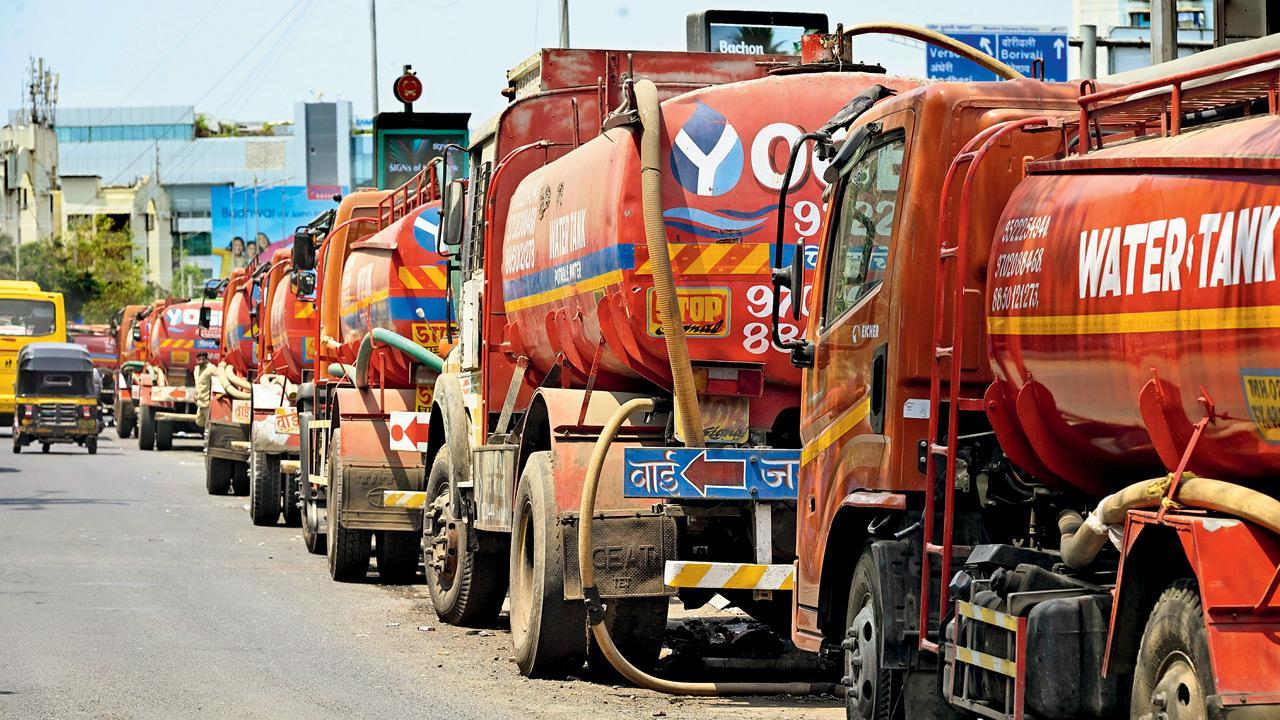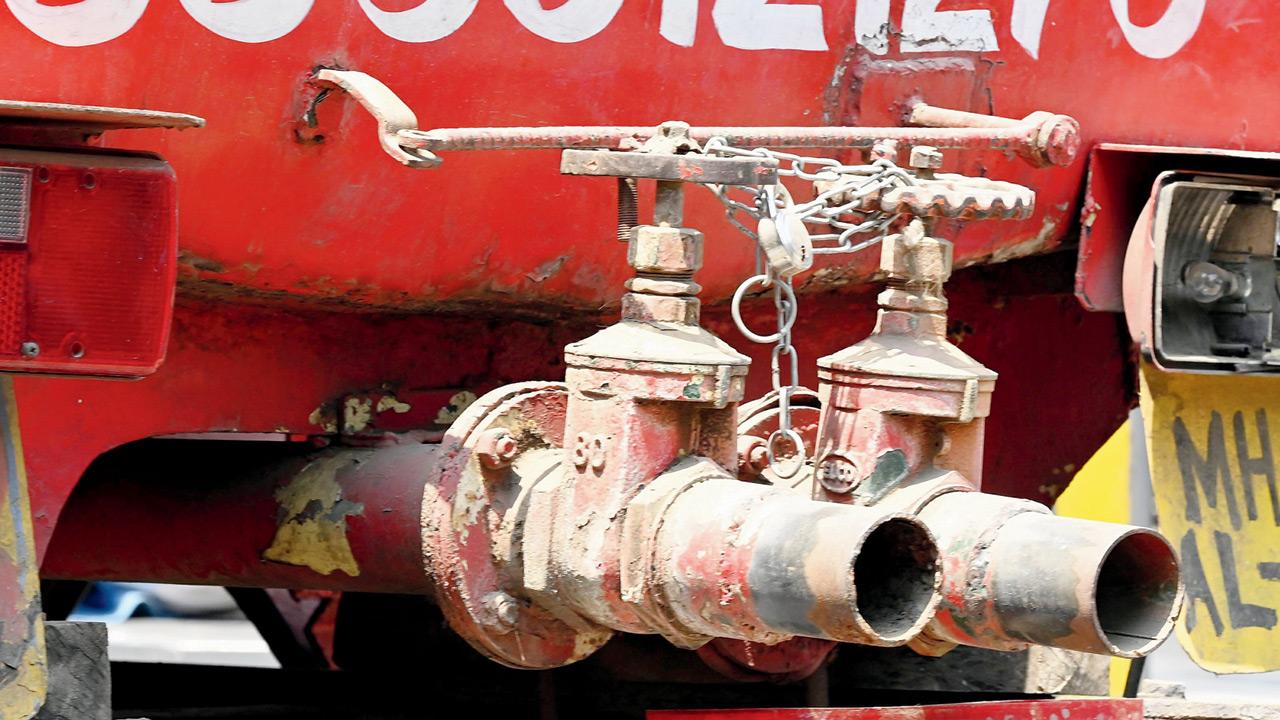Representatives of both sides yet to meet even as city experiences minor inconveniences; While Ashish Shelar, guardian minister of Mumbai Suburban district, said he was attempting to resolve the issue with the help of the Union government, 1800 water tankers were parked across the city

Water tankers queue up next to the Western Express Highway in Andheri East yesterday. Pics/Ashish Raje
On Day 1 on the strike called by private water tanker operators, the Mumbai Water Tanker Association (MWTA) claimed it has received no word from any government authority over its objections to civic body notices to private borewell owners to cease supplying water to tankers unless they obtain fresh licences from the Central Ground Water Authority (CGWA).
While Ashish Shelar, guardian minister of Mumbai Suburban district, said he was attempting to resolve the issue with the help of the Union government, 1800 water tankers were parked across the city. MWTA General Secretary Rajesh Thakur told mid-day, “Our operations have ceased. We are following the guidelines mentioned in the BMC notices. We did not get any response from the government. We are waiting for a reply.”

A chained water tanker in Andheri East yesterday. Pics/Ashish Raje
He also claimed the effects of the cessation of operations would be evident in the coming days. Shelar told mid-day he had written a letter to Union Jal Shakti Minister C R Patil on Wednesday. “As the decision was made by the Supreme Court, only the court can intervene in this issue. I can understand the issue of water suppliers. I’m in talks with the Union minister,” the BJP MLA said.
Thakur reiterated the claim that tanker operators were not on strike, saying, “We have stopped our operations to prevent legal litigation.” The BMC made it mandatory for private borewell owners to obtain CGWA licences for providing water to tankers. For this, they must install flow meters and satellite meters at the groundwater source. Also, the tankers must have GPS tracking and only five to 10 tankers can extract water from a source in a day.
“We are ready to follow guidelines that are practically possible. But one states that an area of 200 square metres must be maintained around a groundwater source, which is not possible in Mumbai,” said Thakur. Meanwhile, BMC officials claimed the cessation of water tanker services had no impact on concreting work on Thursday. “But the situation will have an effect on ready-mix plants as they use well water,” an official said. Civic chief Bhushan Gagrani did not respond to mid-day’s calls by press time.
‘Hold press conference’
Shiv Sena (UBT) leader Aaditya Thackeray slammed the state government, stating despite, this issue persisting for the past three years, the Maharashtra government hadn’t taken it up with the Government of India.
“Mumbaikars will suffer because of certain impractical guidelines made by those sitting in government of India offices in Delhi. I urge the BMC commissioner to hold a press conference and apprise Mumbaikars on BMC’s plan on the water woes,” he posted on X, formerly known as Twitter.
In 2023, the BMC issued notices to borewell owners but this exercise was halted after the state government intervened. The BMC’s pesticide department started issuing notices again to well owners last month.
Facts and figures
Around 1800 water tankers in the city provide non-potable water from ring wells and borewells. The capacity of each such vehicle is 10,000 litres. According to estimates, these tankers supply around 200 million to 250 million litres of non-potable water per day, which is used primarily at construction sites, in shopping malls and for infrastructure projects. These vehicles also supply 50 million litres of potable water. There are around 800 to 900 groundwater sources in Mumbai.
 Subscribe today by clicking the link and stay updated with the latest news!" Click here!
Subscribe today by clicking the link and stay updated with the latest news!" Click here!








